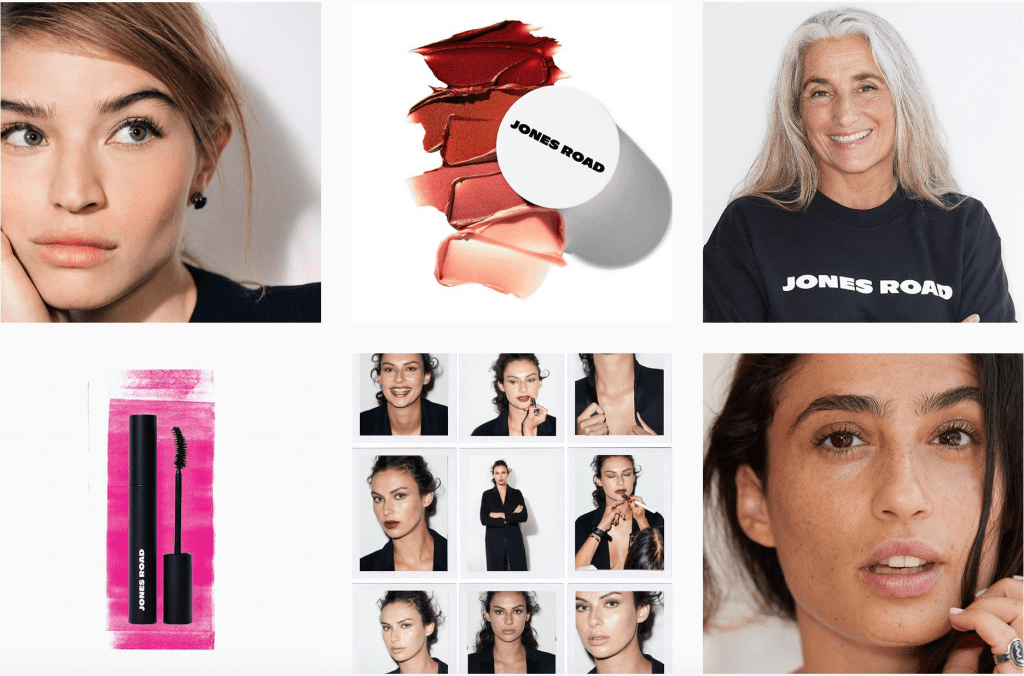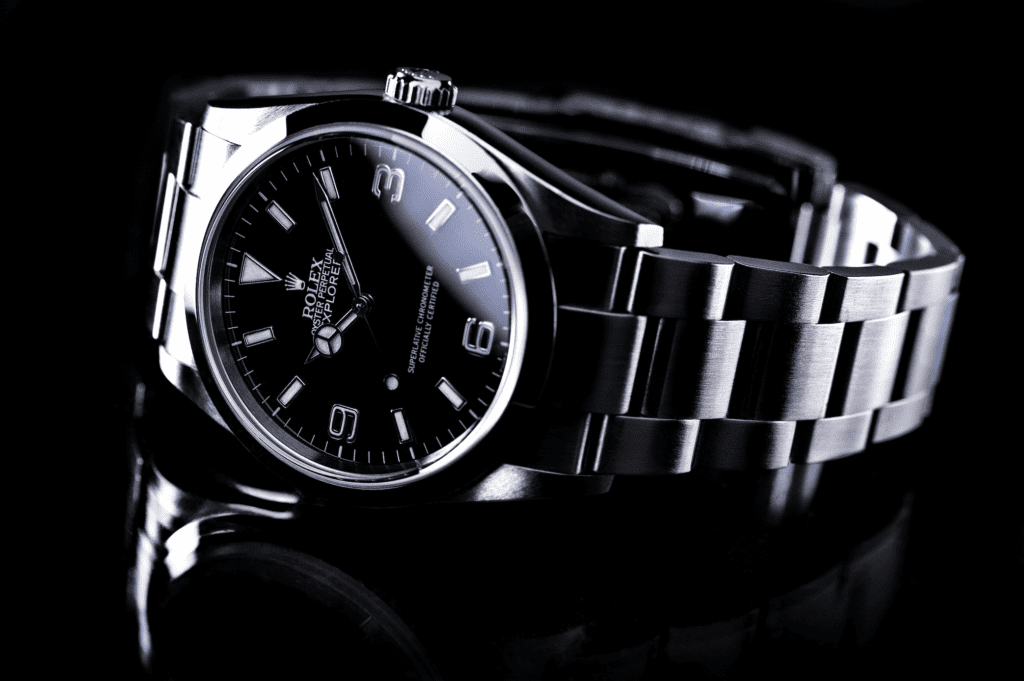Bobbi Brown is getting back into the makeup business. The beauty mogul has launched a new venture, called Jones Road, which consists of a collection of six products that boast clean ingredients and a more natural approach to makeup, the Wall Street Journal reported on Monday. While the products themselves – from the “part moisturizer, part skin tint” that is the Miracle Balm to “The Best Pencil” eyeliner and the high-pigment “Best Eyeshadow” – are noteworthy, the name of Brown’s new project and the timing of it present some interesting legal issues, particularly in light of the recent surge in headline-making beauty industry M&A deals.
First things first, the date of the official announcement of Jones Road is hardly a coincidence. According to the WSJ, the October 26 launch coincides with the conclusion of Brown’s reported non-compete clause with Estée Lauder Companies, the cosmetics giant that acquired her then-just-4-year old eponymous label in 1995 for an undisclosed sum. (Inc. previously reported that while “the sale price wasn’t disclosed, Estée Lauder reported that the $74.5 million it invested [in 1995] was principally on the Bobbi Brown acquisition.”). Ms. Brown would stay onboard at her Estée Lauder-owned brand for more than 20 years, keeping creative control all the while.
When the two parted ways in December 2016, Brown reportedly signed off on a whopping four-year-long non-compete agreement, which prevented her from operating in the beauty space (either via a new brand of her own or by way of an already-existing competitor) for the duration, presumably in exchange for compensation from the New York-headquartered Estée Lauder in order to make the longer-than-usual covenant not to compete a valid contract.
Interestingly enough, that non-compete did not prevent Brown from launching Evolution 18, a company in the business of making “supplements for gorgeous skin, shiny hair, and overall glow.” First introduced in 2018 as Beauty Evolution, and subsequently launched in early 2019 with a modified moniker, the company’s products were first offered up by QVC, and have since been stocked in hundreds of Walmart stores across the U.S., as well as on the Evolution 18 e-commerce site. The brand, itself, is closely connected – in many cases – to Brown, herself, albeit, Brown has seemingly … dropped the Brown.
Potentially due to contractual limitations, Brown’s last name is often left out of her post-Estée era ventures. The “modern lifestyle platform for all things wellness, beauty, travel and everything in between” that Brown launched in 2018 is conveniently named JustBobbi. Meanwhile, the marketing on the Evolution 18 and Walmart websites for the buzzy supplements promotes the company as being “created by makeup artist and entrepreneur Bobbi.”
In addition to – or maybe more importantly than – her non-compete, Brown, now 63, agreed to something else long before she left Estée Lauder. In selling off ownership of her company in 1995, she traded off certain rights in her name in exchange for a pay day, as is customary in such M&A deals. After all, one of the most central elements of a brand acquisition is the transfer in ownership of that company’s intellectual property, including trademark rights in the brand name, logos, etc. In this case, that was the trademark-protected “Bobbi Brown” name for use on everything from cosmetics products, themselves, and retail (and online retail) services associated with the sale of cosmetics to eyewear fragrances, and various categories of related goods and services, as well as related marks, such as “Bobbi Brown Beach,” “Bobbi Brown Essentials,” “B Bobbi Brown,” etc.
Against that background, Brown is unable to launch a new brand under her name, regardless of the fact that Bobbi Brown is her personal name (it is worth noting that she is perfectly free to use her name in her personal capacity, as that is distinct from use in commerce), which is precisely why her new venture is devoid of her famous moniker. Instead, it is called Jones Road, which Brown “came up with while navigating around the Hamptons with Waze,” the WSJ notes.
(Amusingly, before Bobbi Brown’s trademark counsel filed trademark applications for registration for “Jones Road” and “Jones Road Beauty,” she also filed an application for “Nameless Beauty” for use on “cosmetics; fragrances; non-medicated skin care preparations; hair care preparations,” potentially a cheeky play on the fact that Brown traded in her famous brand name in connection with the Estée Lauder deal. It appears that the brand has not moved forward with that brand name, though.)
Beyond the obvious ban on a new “Bobbi Brown” venture or a venture with a confusingly similar name, on one hand, and her clear ability to release a new collection with “a similar aesthetic,” which is how the WSJ describes Jones Road, on the other, what Ms. Brown can and cannot do is not entirely clear without seeing the specific terms of her agreement with Estée Lauder.
Chances are, however, she is limited in terms of how she can promote her new brand, and the famous Joseph Abboud case is certainly telling on this front. In that case, which was filed in 2007 by JA Apparel Corp. (the holding associated with his eponymous menswear company that he sold to his partner in 2000 for $65.5 million), Abboud was sued after launching a menswear brand called JAZ, and promoting it as “a new composition by designer Joseph Abboud.”
JA Apparel Corp. alleged trademark infringement, among other charges, arguing that Mr. Abboud could not continue to use his personal name to promote or sell fashion goods as a result of the deal, and a New York federal court agreed, holding in June 2008 that Abboud had sold off his right to use his name commercially, as well as his right to use and apply for trademark registrations for new trademarks or designations containing the words “Joseph Abboud,” or anything similar to or derivative of his name.
Against that background and assuming that the acquisition agreement with Estée Lauder includes similarly strict language, Brown is likely prohibited from marketing Jones Road as coming from or being affiliated with Bobbi Brown, as that could cause confusion among consumers about whether the new brand is affiliated with Bobbi Brown, the Estée Lauder-owned company, as opposed to Bobbi Brown, the individual. It is worth noting that on Instagram, Jones Road is coined as being “founded by @justbobbidotcom,” the account labeled as being associated with “Bobbi Brown Makeup Artist.” The explicit disclaimer in play: “Bobbi is no longer affiliated with Bobbi Brown Cosmetics Company.”
At the same time, though, Brown is clearly not prohibited from promoting her new company more generally, or to some extent, serving as the publicly-facing force behind it. Her photo is, after all, front and center in the WSJ’s coverage of Jones Road, as are discussions of her career, excerpts from an interview with her, and mentions of her famous first beauty venture.
Ultimately, the in-and-outs of eponymous labels can prove to be a bit more complex in instances of merger and acquisitions than many brand-builders initially anticipate, which is why no small number of lawyers have taken to counseling clients about the potential downsides, including “the potential to lose control over or be restricted in the use of your name and likeness as a brand in the event of an acquisition or a separation from the company,” Loeb & Loeb’s Sara J. Crisafulli and Melanie J. Howard have asserted in connection with the issues raised by naming your brand after yourself.
They note that “a transfer of rights or interest in or ceding of control over the brand to a third party (or to a friendly entity in which you don’t have full ownership) could diminish your right to use and/or control the use of your name and likeness,” which could very well “include giving up domain names and social media accounts for your personal name, and ceasing any uses that could be confused with the use of your name as a brand by the company.”
“Following a sale of an eponymous brand,” Crisafulli and Howard say that “designers who wish to continue selling their designs should be prepared to conceive of and launch a new brand” in much the same way as Brown … or risk facing legal action.











